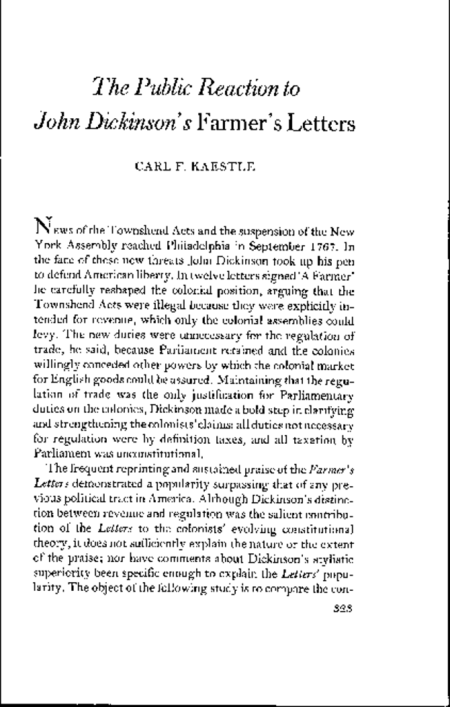In writing 12 letters signed "A Farmer" which appeared in 19 of the 23 colonial English-language newspapers in 1767 and 1768, John Dickinson boldly attempted to clarify and strengthen the colonists' claims. All duties not for regulation were really taxes, he argued, and any taxation by Parliament was unconstitutional. Although the distinction was not new, Dickinson made it more comprehensive than had been done previously, opening new theoretical dimensions, and providing controversialists with needed ammunition. In many ways, the "Letters" were well contrived. Making use of familiar Whig conceptions, Dickinson in his choice of a pseudonym also appealed to a widespread belief about the good life of the soil. His self-description suggested the farmer-scholar qualities of detachment, scholarship, virtuous leisure, moderate wealth, and humility. Popular success of the "Letters" was due partly to Dickinson's skill as a publicist and partly to their promotion by the Whig press. A small group of Whigs with effective control of the press emphasized the positive reaction to the "Farmer's Letters" while English opinion was distorted. Response indicated that Dickinson's convictions were matched by those of his readers. Based mainly on colonial newspapers; 4 appendixes, 59 notes.
The Public Reaction to John Dickinson's Farmer's Letters.
Publication Date
Volume
78
Part
2
Page Range
323-359
Proceedings Genre
